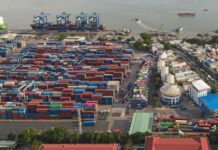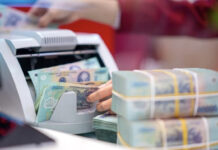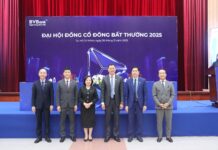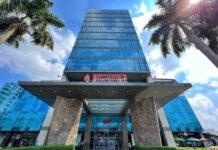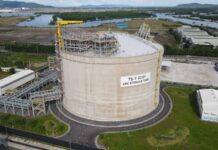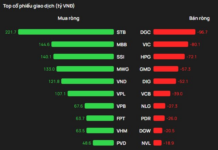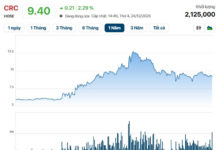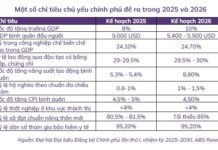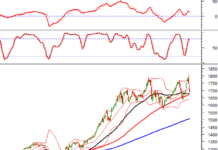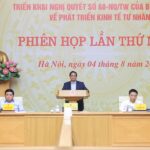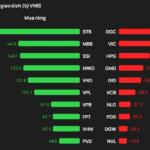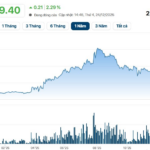Illegal Money Transfers from Cambodia to Vietnam: A Complex Criminal Enterprise Unveiled
On August 2nd, Ho Chi Minh City police concluded their investigation and forwarded the case to the municipal People’s Procuracy, recommending prosecution against Do Viet Dai (b. 1971), Nguyen Thi Kim Ngan (b. 1977, owner of Duc Long jewelry store), Nguyen Thi Kim Trang (b. 1970), and Le Van Hoa (b. 1977) for their involvement in illicit money transfers.
Transnational Money Laundering and Fraud: A Complex Web
Additionally, the police recommended prosecuting Mai Vu Minh (b. 1995), Le Thi Tham (b. 1976), Okoye Christian Ikechukwu (b. 1985, Nigerian national), and several others for charges including money laundering and illegal cross-border currency transportation.
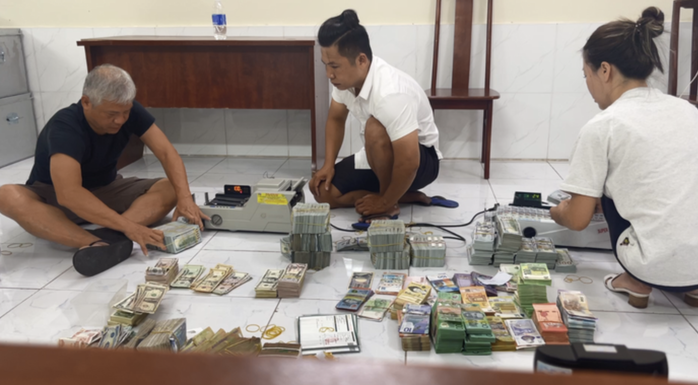
Evidence seized from Duc Long jewelry store
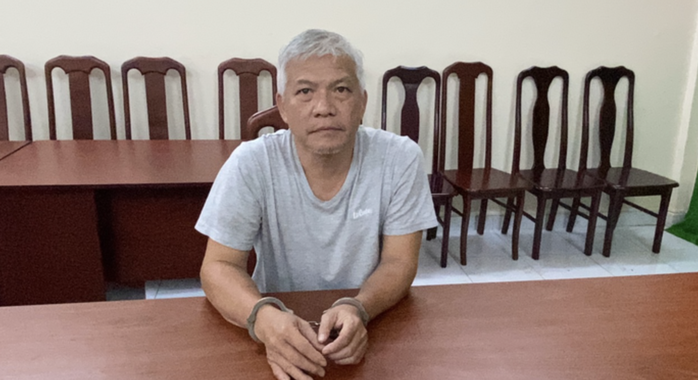
Owner of Duc Long jewelry store
The investigation also led to the issuance of arrest warrants for Mai Tra Mi (b. 1992) and Eneh Davidson Caleb (b. 1996, Nigerian national) on money laundering charges.
This case involves a sophisticated criminal enterprise that organized and operated an illegal money transfer scheme between Cambodia and Vietnam, with the primary objective of generating illicit profits. The perpetrators collaborated and established a network of contacts and locations for exchanging, receiving, and transferring funds across borders, primarily between Vietnam and Cambodia.
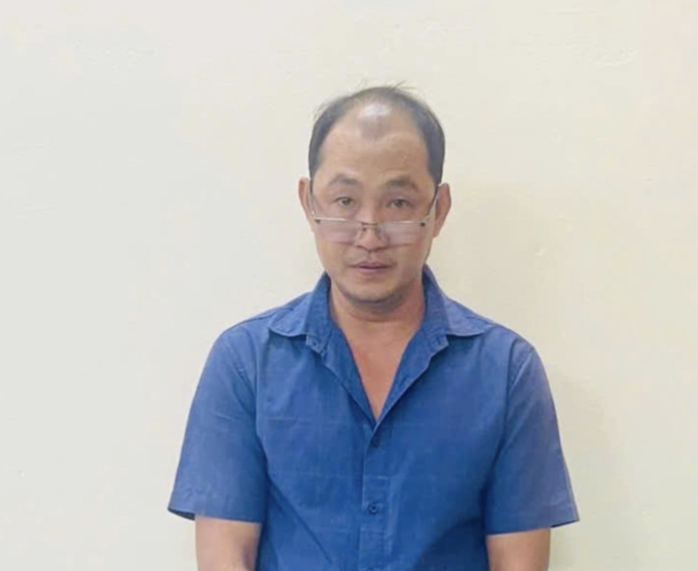
Le Van Hoa, one of the accused
Ngan and Dai, under the guise of running a jewelry business, rented a discreet location on Cach Mang Thang 8 Street in Ho Chi Minh City as their base for illicit activities. They hired Trang and Hoa to handle foreign currency transactions and record-keeping. The group agreed to a profit-sharing scheme with their Cambodian counterparts, earning 1.5 million VND for every 2.5 billion VND exchanged.
Unraveling the Complex Web: A Transnational Crime Syndicate
From August 2023 to April 5, 2024, the syndicate transferred nearly $11 million and 2.048 billion VND from Cambodia to Vietnam, and approximately $8.2 million and over 35 billion VND in the opposite direction.
The case originated from a report by the Ukrainian Embassy in Vietnam to the Ho Chi Minh City police regarding the embezzlement of $314,000 from a Ukrainian company after a transaction with a Vietnamese company.
Upon receiving this information, the Ho Chi Minh City police directorate instructed the Office of the Criminal Investigation Agency (PC01) to collaborate with other units to establish a specialized task force to tackle the case.
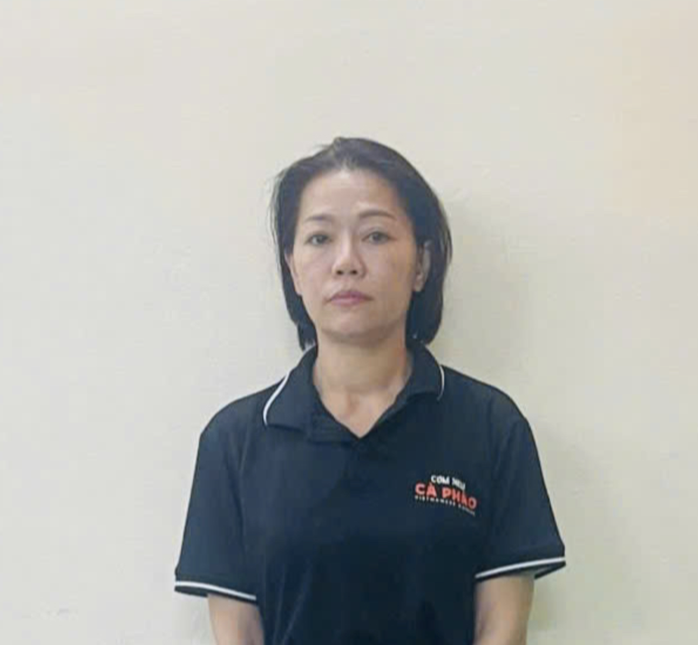
Nguyen Thi Kim Trang, one of the accused
A Network of Shell Companies: The Key to the Syndicate’s Success
The criminal group created fake emails that were deceptively similar to those of the victim company’s partners. They used these emails to communicate and provide false reasons for changing transaction accounts. In collaboration with their foreign counterparts, they established numerous shell companies with names resembling those of legitimate partner companies.
These shell companies opened both USD and VND bank accounts. The syndicate then provided the account details of these shell companies to the victims, who, believing them to be legitimate, transferred funds. Once the funds were received in the USD accounts, the shell company representatives quickly converted the USD to VND and transferred the money into VND accounts. From there, the funds were funneled into the personal accounts of various individuals in Vietnam.
The investigation revealed that the group had set up over 300 shell companies to facilitate their criminal activities. Specifically, Nguyen Thi Huong was linked to 116 companies, Nguyen Thi Thanh Thuy to 112 companies, and Le Thi Tham to 53 companies. These shell companies were used to launder over $3 million.
The syndicate members would then withdraw the cash and bring it to Yến Sào Kingfood in District 11 and Duc Long jewelry store to illegally transfer USD to their accomplices in Cambodia.
Ho Chi Minh City police uncovered the establishment of over 300 shell companies by the Vietnamese syndicate to facilitate money laundering. The group successfully laundered 4,150 billion VND and $160 million through these shell companies.
The police continue to investigate the syndicate’s creation of numerous shell companies and will hold accountable any individuals or organizations found complicit. Efforts are also underway to address vulnerabilities that criminals may exploit for illicit activities.
“Celebrating National Pride: SHB’s ‘Happiness is Being Vietnamese’ Campaign”
Celebrating 80 years of the August Revolution (August 19, 1945 – August 19, 2025) and the National Day of the Socialist Republic of Vietnam (September 2, 1945 – September 2, 2025), SHB introduces a series of activities themed “Happiness is Being Vietnamese.” The highlight of these activities is a customer gift set designed to spread happiness and national pride to our customers and the public.
“Khải Hoàn Land Group Sweeps Up Awards at the 2025 Dot Property Awards”
“The prestigious double award win for ‘Best Property Developer in the South 2025’ and ‘Best Real Estate Distribution Company in Vietnam 2025’ further cements the reputation and standing of KHG and its subsidiary, Khai Minh Land, in the property market.
“EVFTA: A Half-Decade Trade Triumph for Vietnam and the EU, with Nearly $300 Billion in Commerce”
After 5 years in effect, the EVFTA has facilitated trade between Vietnam and the EU, totaling nearly $300 billion. This has elevated Vietnam’s standing in ASEAN and on the global stage. The agreement has also driven institutional reforms, promoted the adoption of international standards, and fostered stronger business connections.





